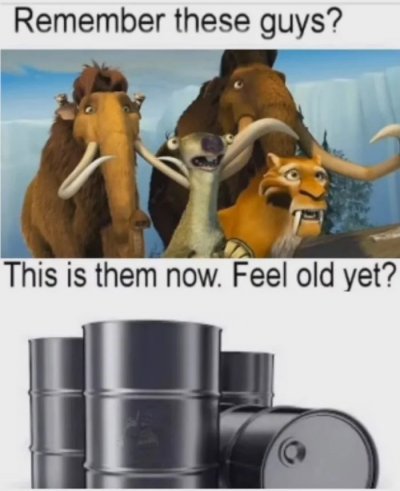You are using an out of date browser. It may not display this or other websites correctly.
You should upgrade or use an alternative browser.
You should upgrade or use an alternative browser.
shell T6 0-40
- Thread starter Gsteve
- Start date
Disclaimer: Links on this page pointing to Amazon, eBay and other sites may include affiliate code. If you click them and make a purchase, we may earn a small commission.
I stick with the base weight oil specified for the engine. If Ford wants 5W-"X", I'm not going to run it on 0W-"X" or 10W-"X".
The "X" values are achieved through viscosicty modifiers that break down, resulting in the oil acting more like the W (base weight 0,5,10) and less like the modified weight (20,30,40,50) when hot.
The wider the range you are trying to span, the more viscosity modifers you need- and the more of a change you see when they do break down.
Change it every 5K miles though and any synthetic will be fine.
The "X" values are achieved through viscosicty modifiers that break down, resulting in the oil acting more like the W (base weight 0,5,10) and less like the modified weight (20,30,40,50) when hot.
The wider the range you are trying to span, the more viscosity modifers you need- and the more of a change you see when they do break down.
Change it every 5K miles though and any synthetic will be fine.
BoostCreep
FRF Addict
I used brotella T6 5w40 the entire time on my gen 2 but stopped using it because it’s really formulated for diesel applications. My friend is a petroleum engineer and gave me a bunch of info about additives that aren’t ideal in gasoline engines that can potentially increase knock events. I can’t remember the specifics but I never really had any issues. T6 is pretty popular in the Subaru communities which is when I first started using it.
Whatever you use, stick with 5w30 or 5w40.
Whatever you use, stick with 5w30 or 5w40.
JohnyPython
FRF Addict
Rotella T6 5w30 Multi Vehicle exists. Stick to the recommended viscosity.
TwizzleStix
Pudendum Inspector aka FORZDA 1
The T6 has much more calcium in it for nasty diesels, which makes it terrible in direct injected engines. Just say no. I have direct experience and two broken engines before the problem was discovered by the aftermarket.
Great call on that . Anyone know calcium values? Bad news for DI motors ;LSPi…The T6 has much more calcium in it for nasty diesels, which makes it terrible in direct injected engines. Just say no. I have direct experience and two broken engines before the problem was discovered by the aftermarket.
Nex
RIP CoronaRaptor
BoostCreep
FRF Addict
BigTaco
Full Access Member
I stick with the base weight oil specified for the engine. If Ford wants 5W-"X", I'm not going to run it on 0W-"X" or 10W-"X".
The "X" values are achieved through viscosicty modifiers that break down, resulting in the oil acting more like the W (base weight 0,5,10) and less like the modified weight (20,30,40,50) when hot.
The wider the range you are trying to span, the more viscosity modifers you need- and the more of a change you see when they do break down.
Change it every 5K miles though and any synthetic will be fine.
This is not totally true. Lower quality synthetics use tons of VI to get to the Target viscosity. The more VI used, the more it will thin out of original spec through driving cycles between oil changes no matter the brand. mPAO has a better Viscocity Index (vs POA base oil) and maintains its original viscosity during its duty cycle.I stick with the base weight oil specified for the engine. If Ford wants 5W-"X", I'm not going to run it on 0W-"X" or 10W-"X".
The "X" values are achieved through viscosicty modifiers that break down, resulting in the oil acting more like the W (base weight 0,5,10) and less like the modified weight (20,30,40,50) when hot.
The wider the range you are trying to span, the more viscosity modifers you need- and the more of a change you see when they do break down.
Change it every 5K miles though and any synthetic will be fine.
“W” in multigrade oil never means “weight”, its stands for winter.
W in 5W-30 means that a cranking fixture has been used to give the oil a 5 “score” at 0F. The lower the number, the easier it is for the testing motor ( a spinning paddle like thing) to crank.
The 30 is the SAE grade of the oil at 212F. That test is a pour through a viscometer.
All oil thins out as it gets warmer.
5W-30 is does not start thin and then thicken when warm.
Where did you get the terms “base weight” and “modified weight” from?
Thanks,
BT
Similar threads
- Replies
- 23
- Views
- 2K
- Replies
- 0
- Views
- 1K
- Replies
- 8
- Views
- 2K
Members online
- Forgiven
- Idaho
- P4SHOCAT
- bigrig
- jAKe47
- Hard R
- toxwaste
- whatthetruck
- chris51080
- Dev
- Daneger
- DMacDonald
- wyomingraptor
- CBreedlove
- Winchester30
- Doomsbright
- Badgertits
- RDunn82
- 9213dog
- MZRaptor72
- stuntshow509
- MurderedOutSVT
- 10SpdsOfFury
- n8doggnp
- Pyro3601
- MSP
- James O
- rockyrapterr
- gusser
- razmspiele
- WTX
- CoolrainRaptor
- Sozzy12
- BHook
- Domin0
- CleverGirl_
- MRaptor
- ToadSmasher2K1
- GordoJay
- mac83
- m4can2
- Tx Tiger
- HORN HIGH ACES
- trav7314
- Javi
- 2020FordRaptor
- pat247
- DFWRob
- CaptainBeard714
- relak
Total: 1,781 (members: 87, guests: 1,694)




